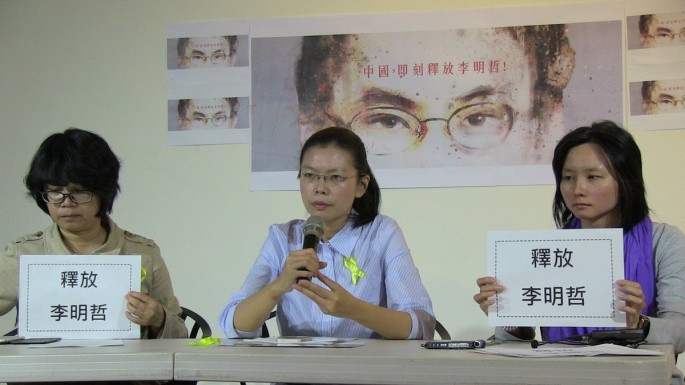Taiwan's government said on Wednesday that the Chinese activist Zhang Xiangzhong, who intended to apply for asylum in the country, had voluntarily returned to China after meeting with immigration officials, sparing the island nation from a potential diplomatic tangle with its mainland neighbor.
Zhang, an anti-corruption activist who spent three years in prison in China, had arrived in Taiwan on April 12 as part of an eight-day group tour.
The next day he abandoned the group and on Friday announced in an interview with Radio Free Asia that he intended to apply for political refugee status, The New York Times reported.
However, according to a statement from Taiwan's Mainland Affairs Council, Zhang flew back to China on Wednesday morning with his tour group.
The 48-year-old Zhang, who had campaigned for greater transparency from the Chinese government, was jailed in 2013 for "gathering a crowd to disrupt public order."
In 2014 he was sentenced on what his lawyers said was a trumped-up charge of credit card fraud, and he was released last July.
In his interview with Radio Free Asia, Zhang said he was made to do a forced confession under torture and that his health had deteriorated in jail due to lack of medication for his asthma.
"There's legitimate concern about Zhang's safety after he's sent back to China," said Patrick Poon, a researcher at Amnesty International in Hong Kong.
Taiwan currently does not provide political asylum to Chinese citizens, although it has granted long-term residence for political reasons on a case-to-case-basis. The nation previously offered asylum but stopped doing so following a string of hijackings of planes by Chinese asylum seekers in the 1990s.
China claims independent Taiwan as part of its territory and has not ruled out the use of force to annex it, making the cases of Chinese political refugees more complicated.
In the statement by the Mainland Affairs Council, Taiwanese immigration officials ruled that Zhang's application for asylum "did not conform to the rules for special cases of long-term residence currently in effect."
"After explaining this to Mr. Zhang, he fully understood and agreed to depart with his original tour group upon completion of its travel period, in accordance with the rules of the Cross-Strait Tourism Agreement," the statement said.
The Council also clarified to The Times in an email that Zhang's case is "not connected in any way" to Lee Ming-cheh, a Taiwanese rights activist currently imprisoned in China.
Zhang told Radio Free Asia that he was inspired to apply for asylum following a statement made last week by Lee's wife, Lee Ching-yu. Lee, who has been detained in China since last month, had donated cash and books to relatives of imprisoned Chinese rights lawyers.
Ms. Lee had announced that she intends to go to China to "rescue" her husband, whose whereabouts remain unknown, but Chinese officials have canceled her permit to enter China, preventing her to board a flight to Beijing on April 10.
Lee's wife's statements, which have drawn criticism from Chinese officials and several Taiwanese politicians who claim her activities were interfering with backdoor negotiations, struck a chord with Zhang.
"I remember something Lee Ching-yu said," he told Radio Free Asia. "I must carry on fighting. I will not allow my husband to lose his dignity in return for his freedom and to spend the rest of his life little better than a dog."
"It doesn't matter how powerful China becomes," Zhang added. "They can only take our freedom and our lives, but they can't break our dignity."



























